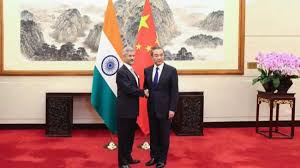World
Russia calls for continued investigation into MH17 crash

Moscow: Russia has urged a continued investigation into the crash of Malaysia Airlines flight MH17 over conflict-hit eastern Ukraine in July 2014, in which all 298 people on board were killed.
“Of course we are ready (for continuing investigation),” Xinhua quoted Maria Zakharova, the spokeswoman of foreign ministry, as saying on Tuesday, who insisted a number of questions still remain unanswered regarding the incident.
“This situation could be overcome by continuing a properly adjusted investigation, with involvement of countries possessing materials that can shed some light on the MH17 disaster,” Zakharova said.
The spokeswoman said it is indisputable that Ukraine was directly responsible for not closing its airspace to civil aviation flights.
While noting that Russia is studying the final report released on Tuesday by the Dutch Safety Board (DSB), Zakharova said Russia has always expressed willingness but was refused to participate in previous investigations “on different pretexts”.
Dutch Prime Minister Mark Rutte urged Russia to cooperate into the investigation, while from the very beginning Russia was prepared to engage in this work, Zakharova said.
Kremlin spokesman Dmitry Peskov also criticised the investigation as “biased and purposefully partial”.
“We have never concealed that we are very frustrated by the fact that Russian experts have not been engaged in this investigation,” Peskov said.
He said information obtained by Moscow, in particular experiment reports done by Russian Almaz-Antei missile manufacturer, was not considered by the investigation team.
Almaz-Antei published its investigation results on Tuesday, saying the plane was shot down by a 9M38 surface-to-air missile from the vicinity of Ukraine’s Zaroshchenskoye settlement controlled by the Ukrainian military.
Additional criminal investigation will be carried out by the Joint Investigation Team to establish the exact launching location of the missile.
The Joint Investigation Team is led by the Dutch national police and prosecutor, with the participation of specialists from Australia, Belgium, Malaysia, Ukraine.
World
Lockdowns in China Force Urban Communities to Defy Censorship and Vent Frustration Online

Shanghai’s rich middle class is leading a wave of online dissent over the strict and prolonged lockdowns imposed in various parts of the country. Chinese internet censorship is struggling as patience is wearing thin in many urban centers, coming up with creative forms of online protests.
Social Media Posts Revealing Lockdown Tension in Shanghai
Drawn-out lockdowns are nothing new in China as authorities insist with the nation’s zero-Covid policy since the start of the pandemic. Currently over This time around, however, metropolitan areas like Shanghai are increasingly difficult to keep quiet, given that its more than 25 million residents have seen weeks of total isolation along with food shortages and many other service interruptions.
Dozens of towns and reportedly over 300 million Chinese citizens have been affected by lockdowns of different severity. As expected, urban netizens have been most outspoken over their difficulties by finding creative ways to get around state censorship and bans placed on topics, news comments and spontaneous campaigns.
Shanghai residents have been using mobile proxies and hijacking seemingly unrelated hashtags to talk about healthcare issues, delivery failures and the overall severity of their situation. The “positive energy” that the Chinese government wants to transmit during the recent prolonged series of lockdowns does not come naturally to those counting food supplies and online censors are working hard to filter words, trending topics and undesired social media sharing.
WeChat groups and message threads are under constant monitoring. Posts questioning the zero-Covid approach have been quickly deleted, including by leading Chinese health experts like Dr. Zhong Nanshan. Video footage is soon censored and protests and investigations are quickly made to disappear.
Where this has not worked, officials have exposed banners with warnings and outright threats like “watch your own mouth or face punishment”, while drones have been patrolling the city skies. Yet, if anything, this has led to further tensions and unspoken confrontation with Shanghai’s educated and affluent middle class.
Creative Online Solutions Harnessing Civic Energy
Announcements by Chinese social media that they would be publishing the IP addresses of users who “spread rumors” have not helped either. Tech industry research has shown that much of Asia’s tech-savvy population has a habit of using mobile proxies and other privacy tools, quickly finding workarounds to browse the internet freely and talk to the world about the hottest topics.
The sheer volume of forbidden posts is already a challenge for the very censorship system, experts explain. Unable to track all trending hashtags, state workers overlook topics that speak about the US, Ukraine or other popular news. Linking human rights elsewhere to their situation, Chinese online dissidents establish their informal channels and “hijack” the conversation to share personal or publicly relevant information about the Covid suppression in their town.
Sarcastic and satirical posts still dominate. Others hope to evade the censors by replacing words from famous poems or the national anthem. One thing is certain – social media, when harnessed with the right creativity, has proven its ability to mount pressure on the government in even some of the most strictly controlled tech environments like China.























